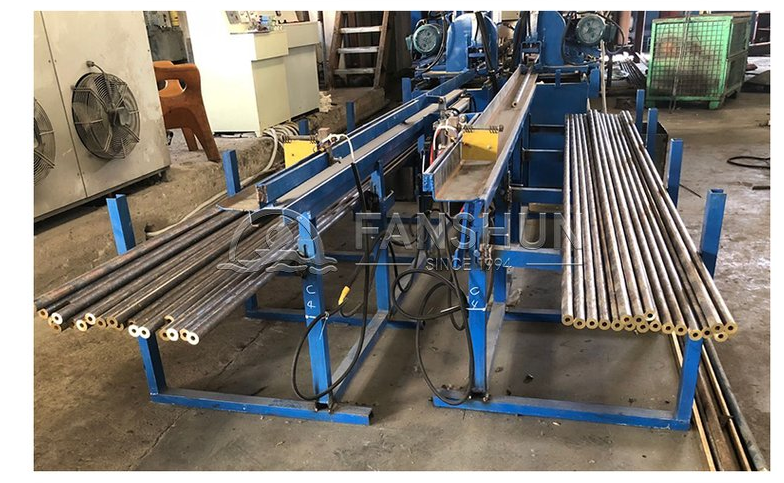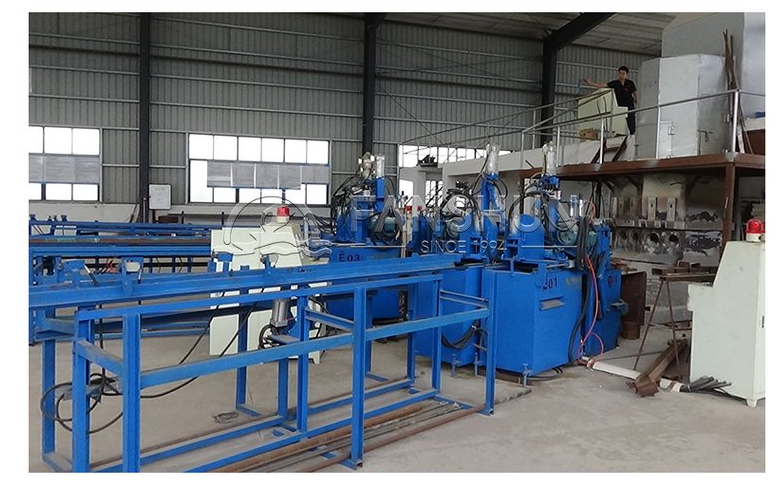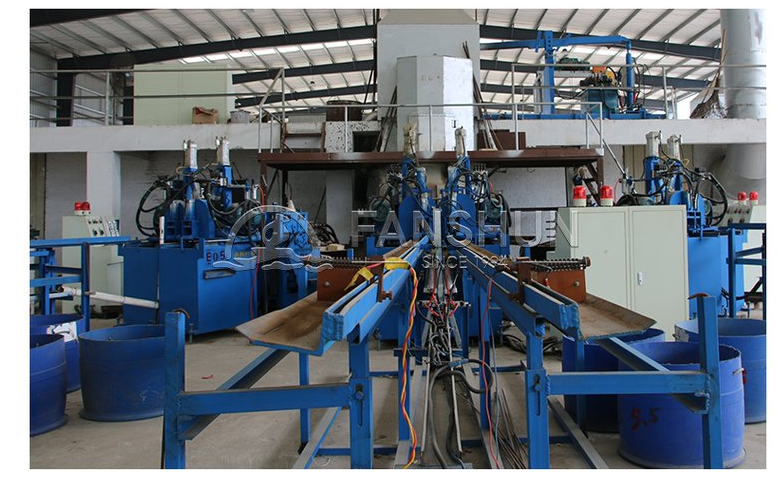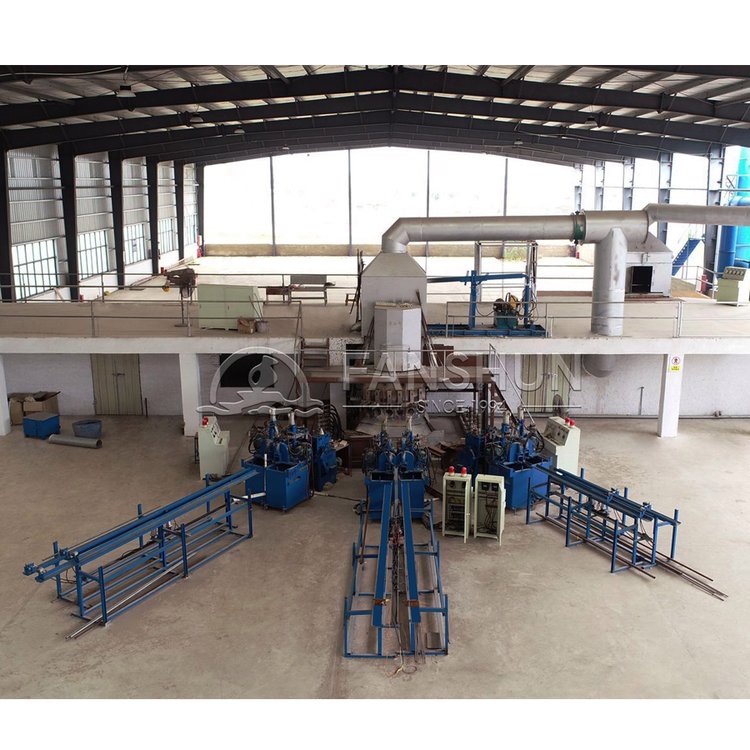Title: Can Copper Scrap be Made into Wire? Transforming Recycled Copper with Advanced Production Lines
Introduction
Copper recycling has become an essential practice worldwide, driven by the growing demand for sustainable materials. One common question is: Can copper scrap be made into wire? The answer is yes, and the process relies on sophisticated equipment like Copper Rod Production Lines, Copper Production Lines, Copper Fabrication Lines, Copper Processing Lines, and Copper Manufacturing Lines. These advanced lines enable the transformation of copper scrap into high-quality copper wire, suitable for various industries.
1. Copper Scrap: An Invaluable Resource
Copper scrap is an environmentally friendly resource, offering significant cost savings and reducing the need for virgin copper mining. Recycled copper can be processed into various products, including copper wire, with minimal impact on quality. The recycling process, however, demands precision and advanced technology to ensure that impurities are removed and that the copper retains its conductive properties. This is where Copper Rod Production Lines and Copper Production Lines play a vital role.
2. The Role of Copper Rod Production Lines
A Copper Rod Production Line is essential for transforming raw or recycled copper into rods that serve as the foundation for wire production. The line begins with melting the copper scrap, followed by casting it into copper rods. Advanced Copper Rod Production Lines use specialized techniques to eliminate impurities, ensuring that the recycled copper is of high purity and quality. The rod produced is then processed further to achieve the perfect thickness, strength, and flexibility required for copper wire.
Within these Copper Production Lines, several stages—including casting, cooling, and rolling—are crucial to turning copper scrap into robust rods. This process also lays the groundwork for Copper Fabrication Lines, which will ultimately shape these rods into fine wires.
3. Copper Fabrication Lines: From Rod to Wire
After creating copper rods, Copper Fabrication Lines take over to transform these rods into wires. Fabrication lines use sophisticated drawing machines that pull the copper rods through a series of dies to achieve the desired wire diameter. These Copper Fabrication Lines also include annealing processes to soften the wire, giving it the flexibility needed for various applications.
The transformation is complex, involving multiple heating, drawing, and cooling stages, but the result is a product comparable in quality to wire made from virgin copper. With the right Copper Fabrication Line, recycled copper scrap can become durable, conductive copper wire.
4. The Importance of Copper Processing Lines
In the broader copper recycling and manufacturing ecosystem, Copper Processing Lines are indispensable. They manage the initial steps of sorting, shredding, and refining copper scrap before it reaches the rod production stage. Through specialized shredders, grinders, and furnaces, Copper Processing Lines break down copper scrap and remove impurities, creating a clean copper source ready for rod production. These lines ensure that recycled copper achieves the necessary standards for conductivity, corrosion resistance, and tensile strength, making it suitable for wire production.
5. Copper Manufacturing Lines: Ensuring Quality and Efficiency
A Copper Manufacturing Line comprises both rod and fabrication lines, handling all stages of copper wire production. From the melting of copper scrap to the final drawing of copper wire, Copper Manufacturing Lines offer a complete solution. These lines are equipped with technology to detect and correct any impurities, defects, or inconsistencies in the copper, ensuring that the final product meets industry standards. The efficiency of Copper Manufacturing Lines also allows manufacturers to produce copper wire with minimal waste, further enhancing the sustainability of copper recycling.
6. Advantages of Recycling Copper Scrap into Wire
The transformation of copper scrap into copper wire through Copper Rod Production Lines and Copper Production Lines offers numerous benefits:
Environmental Impact: Copper recycling reduces the demand for mining, conserving natural resources and minimizing environmental damage.
Energy Efficiency: Producing copper wire from scrap requires significantly less energy than producing it from ore.
Cost Savings: The use of copper scrap in Copper Manufacturing Lines lowers production costs, making copper wire more affordable.
Resource Conservation: Recycling extends the lifespan of copper resources, as the material can be reused repeatedly without losing quality.
7. Copper Production Lines: Supporting Global Copper Needs
With the rise in electrical infrastructure, automotive electronics, and renewable energy projects, the global demand for copper wire has surged. Copper Production Lines have become essential in meeting these demands sustainably. These lines are designed for scalability, allowing manufacturers to adjust output based on market demand.
In addition to the environmental advantages, Copper Production Lines provide a reliable source of copper wire that meets high conductivity and durability standards. Through continuous innovation in copper processing technology, these lines contribute significantly to reducing the copper industry's carbon footprint.
8. Technological Innovations in Copper Processing Lines
Modern Copper Processing Lines include innovations that enhance the efficiency and quality of copper recycling. These advancements focus on refining techniques, improving impurity removal, and optimizing energy use. For example, automated Copper Processing Lines can detect metal types and sort materials accurately, reducing labor costs and maximizing productivity.
Advanced cooling systems and temperature control technologies within these lines ensure that the copper maintains its high conductivity properties, even after being recycled multiple times. This makes Copper Processing Lines a key element in the sustainable recycling of copper scrap.
9. Copper Manufacturing Lines and Industry Applications
From electrical wiring to plumbing, recycled copper wire is in high demand across multiple sectors. Copper Manufacturing Lines can customize copper wire according to specifications for different applications, providing various thicknesses, coatings, and strengths. With recycled copper, industries can reduce costs while ensuring the quality of the wire meets rigorous standards.
Thanks to Copper Manufacturing Lines, recycled copper wire performs as well as wire made from virgin copper. This has opened doors for many industries to adopt recycled materials without sacrificing performance.
Conclusion
Copper scrap has proven to be an invaluable resource that, with the help of advanced Copper Rod Production Lines, Copper Production Lines, Copper Fabrication Lines, Copper Processing Lines, and Copper Manufacturing Lines, can be transformed into high-quality copper wire. Through these lines, manufacturers can recycle copper effectively, supporting a circular economy that benefits both the environment and the industry. As the demand for copper wire continues to grow, the role of recycling and advanced copper production technologies will only become more critical.
The answer to whether copper scrap can be made into wire is not only a resounding "yes," but also a testament to the effectiveness of today’s copper processing technology.





